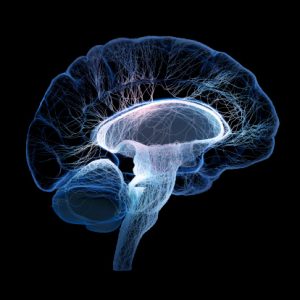 Multiple sclerosis (MS) and overactive bladder (OAB) cause reduction in brain serotonin and cortisol levels. Serotonin is a chemical messenger that facilitates nerve cell communication, while cortisol is a hormone mainly associated with a stress response. Quite frequent in multiple sclerosis, bladder problems could also be one of the first signs of multiple sclerosis.
Multiple sclerosis (MS) and overactive bladder (OAB) cause reduction in brain serotonin and cortisol levels. Serotonin is a chemical messenger that facilitates nerve cell communication, while cortisol is a hormone mainly associated with a stress response. Quite frequent in multiple sclerosis, bladder problems could also be one of the first signs of multiple sclerosis.
The nervous system is heavily involved in the process of urination and, as we know, multiple sclerosis largely affects the nervous system through destruction of the myelin, the protective coating around the nerves and spinal cord.
Advertisement
The researchers studied 101 patients with multiple sclerosis, assessing signs of an overactive bladder and measuring several biomarkers in the cerebral spinal fluid of the study subjects. Biomarkers included neurotransmitters and stress hormones.
Among fifteen participants who had overactive bladder, the researchers found a reduction in a breakdown product of the neurotransmitter serotonin (5-HIAA) – compared to participants who did not have overactive bladder.
The researchers stated, “MS patients with OAB syndrome at the first demyelinating episode show reductions in central serotonergic activity and stress hormones. Whether the same changes persist at later disease stages remains to be investigated.”
Further research will explore whether this pattern continues into the later stages of multiple sclerosis in patients with overactive bladder. The identified biomarkers could be potentially used to detect multiple sclerosis.
Overactive bladder in patients with multiple sclerosis
Multiple sclerosis patients can experience a variety of bladder problems, including nocturia, urinary urgency, incontinence, and urinary hesitancy. Nocturia is a condition in which a person wakes up multiple times at night in order to urinate. Urinary urgency is when a person feels a strong urge to urinate and yet only a small amount comes out. Incontinence is the loss of bladder control that causes leaks, while urinary hesitancy is when it is difficult to start urinating.
Advertisement
Bowel problems, too, can be an issue for multiple sclerosis patients who might experience constipation and fecal incontinence. Fecal incontinence is the loss of control over one’s bowel movements.
Gaining control of your bladder is important, especially if you have multiple sclerosis. Here are some tips you can try in order to better manage and treat your bladder symptoms related to multiple sclerosis:
- Modify your diet and consume less fluids prior to bed, but ensure you are not dehydrated.
- Speak to your doctor about specific medications that can help control bladder symptoms.
- Try pelvic floor physical therapy, which uses pelvic floor training, biofeedback, neuromuscular stimulation, and daily home exercises to reduce urinary urgency and frequency and treat loss of bladder control.
- Consider percutaneous tibial nerve stimulation (PTNS), where a needle is inserted into the ankle to stimulate the tibial nerve. Weekly PTNS treatments are thought to inhibit an overactive bladder.
- Ask your doctor about intermittent self-catheterization (ISC), where a catheter is inserted for those who have difficulty emptying their bladder.
In order to pick the right treatment for optimal relief, it’s important to speak to your doctor and discuss your symptoms.
Even if you have multiple sclerosis, you don’t need to fall victim to your bladder. The first step is to open the conversation to treat your specific needs.
